1. Killing Joke (1980)
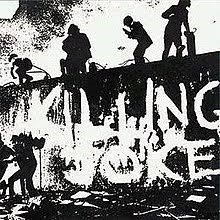
The explosive debut of the iconic post-punk band. With its raw energy and uncompromising sound, the album delivers a relentless barrage of driving rhythms and jagged guitars. Tracks like “Wardance” and “Requiem” epitomize the band’s signature blend of tribal beats and dystopian lyrics. Led by vocalist Jaz Coleman, Killing Joke’s self-titled release captures the angst and disillusionment of its era, resonating with audiences seeking raw, unfiltered music. The album’s dark atmosphere and primal urgency laid the groundwork for the band’s enduring influence on the post-punk and industrial scenes. “Killing Joke” remains a cornerstone of the band’s discography, embodying the spirit of rebellion and sonic experimentation. Its impact reverberates through generations of fans and inspires artists across genres.
2. Night Time (1985)
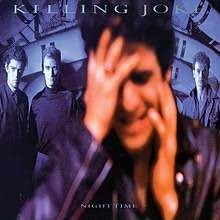
This album catapulted Killing Joke into the spotlight, solidifying their status as post-punk pioneers. Laden with anthemic tracks like “Love Like Blood” and “Eighties,” the album marries infectious hooks with dark, atmospheric undertones. Jaz Coleman’s haunting vocals and Geordie Walker’s guitar wizardry shine amidst driving rhythms and synth-laden landscapes. “Night Time” showcases Killing Joke’s evolution towards a more accessible yet still sonically adventurous sound. With themes of alienation and societal decay, the album resonated with audiences hungry for alternative music. Its success propelled the band onto mainstream stages and airwaves, expanding their reach beyond underground circles. “Night Time” remains a cornerstone of the band’s legacy, capturing the zeitgeist of the mid-80s and inspiring a new wave of alternative artists. Its enduring appeal underscores Killing Joke’s enduring influence on the post-punk and alternative rock landscape.
3. Brighter Than a Thousand Suns (1986)
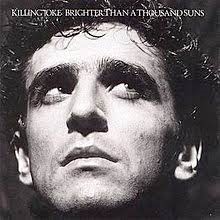
A showcase of Killing Joke’s sonic evolution and experimentation. With this album, the band delves into polished production and atmospheric textures, exploring themes of nuclear anxiety and existential dread. Tracks like “Adorations” and “Sanity” blend haunting melodies with driving rhythms, creating a mesmerizing sonic landscape. Jaz Coleman’s impassioned vocals soar over Geordie Walker’s intricate guitar work and the pulsating beats of Paul Ferguson and Paul Raven. Despite its departure from their earlier sound, “Brighter Than a Thousand Suns” retains Killing Joke’s trademark intensity and lyrical depth. While initially divisive among fans, the album has since garnered appreciation for its bold artistic vision and innovative approach. “Brighter Than a Thousand Suns” stands as a testament to Killing Joke’s willingness to push boundaries and redefine their sound in the ever-changing landscape of post-punk and alternative rock.
4. Pandemonium (1994)
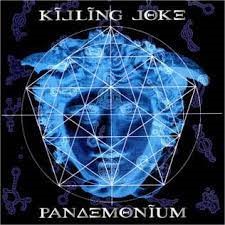
This album marked a bold departure for Killing Joke, infusing their trademark intensity with elements of industrial and metal. The album’s title aptly captures its chaotic energy and apocalyptic themes, reflecting the band’s exploration of societal decay and existential angst. Tracks like “Millennium” and “Jana” pulsate with relentless rhythms and distorted guitars, while Jaz Coleman’s vocals veer between anguish and defiance. “Pandemonium” garnered praise for its visceral sound and uncompromising attitude, attracting both longtime fans and new listeners alike. Despite its darker undertones, the album exudes a cathartic energy that resonates with audiences seeking raw, unfiltered music. “Pandemonium” remains a standout in Killing Joke’s discography, embodying the band’s fearless pursuit of sonic innovation and lyrical depth amidst a world in turmoil.
5. Killing Joke (2003)
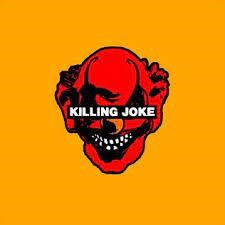
A triumphant return to the band’s roots, delivering a potent blend of post-punk aggression and industrial grit. With this self-titled album, Killing Joke reasserts their sonic dominance, channelling the raw energy and intensity that defined their early work. Tracks like “Seeing Red” and “Dark Forces” showcase the band’s signature sound, characterized by driving rhythms, angular guitars, and Jaz Coleman’s commanding vocals. The album’s themes of societal upheaval and existential dread resonate with listeners navigating turbulent times. “Killing Joke” (2003) received critical acclaim for its raw authenticity and uncompromising vision, solidifying the band’s status as legends of the alternative music scene. This album stands as a testament to Killing Joke’s enduring relevance and influence, reaffirming their place at the forefront of post-punk innovation.

